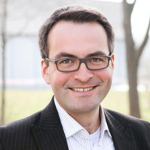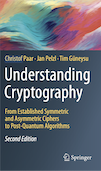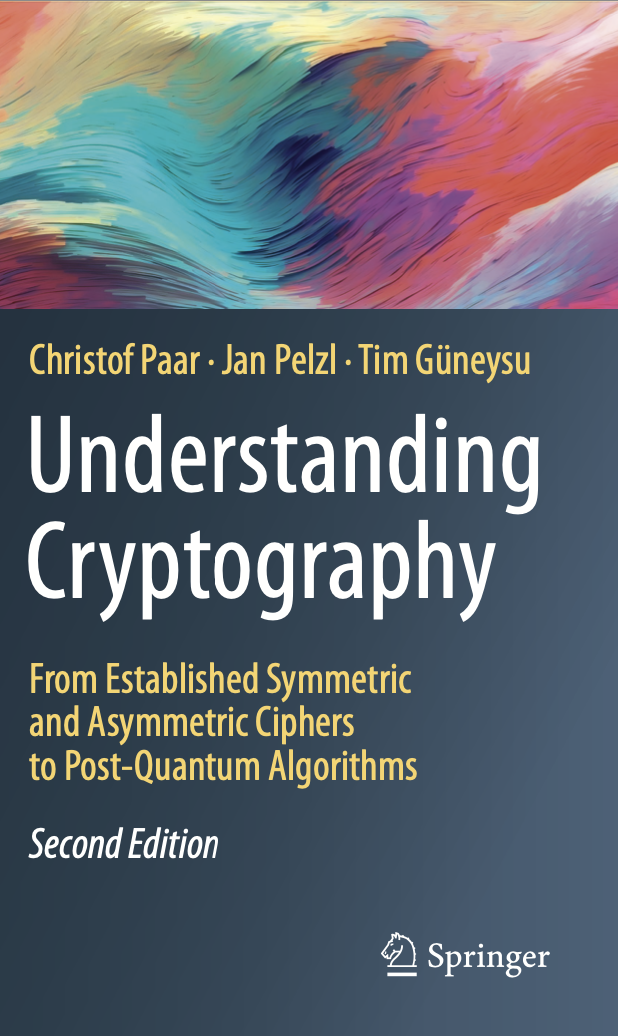About the Book
Understanding and employing cryptography has become a central requirement for securing virtually any digital application, whether user app, cloud service, or even medical implant.
After introducing basic cryptography concepts, this seminal textbook covers nearly all symmetric, asymmetric, and post-quantum cryptographic algorithms currently in use in applications — ranging from cloud computing and smart phones all the way to industrial systems, block chains, and cryptocurrencies.
Topics and features
- Helps develop a comprehensive understanding of modern applied cryptography
- Provides a thorough introduction to post-quantum cryptography consisting of the three standardized cipher families
- Includes for every chapter a comprehensive problem set, extensive examples, and a further-reading discussion
- Communicates, using a unique pedagogical approach, the essentials about foundations and use in practice, while keeping mathematics to a minimum
- Supplies up-to-date security parameters for all cryptographic algorithms
- Incorporates chapter reviews and discussion on such topics as historical and societal context
Ron Rivest
(Cryptographer, Institute Professor at MIT and one of the inventors of the RSA algorithm)
“[…] I recommend this book highly for both undergraduate and graduate classroom use; it can easily be augmented for students with a more theoretical orientation. This book is also recommended for self-study, for anyone who wishes to bring themselves up-to-date on where this exciting field is going.“
Buy the book online
About us
The authors have more than 20 years’ experience teaching cryptography at various universities in the US and Europe. In addition to being renowned scientists, they have extensive experience with applying cryptography in industry, from which they have drawn important lessons for their teaching.

Christof Paar
Founding director at the Max Planck Institute for Security and Privacy in Bochum, Germany and affiliated professor at the University of Massachusetts Amherst
Prior to joining the MPI, Christof was with the Ruhr University Bochum (2001-2019) and WPI in Massachusetts (1995-2001). He spent the academic years 2008/09 and 2014 – 2016 as a research professor at UMass Amherst. He received a Ph.D. in engineering from the Institute for Experimental Mathematics at the University of Essen in 1994.
His research lies in the area of embedded security. His group is currently working on hardware Trojans, technical and cognitive aspects of (hardware) reverse engineering, physical layer security and the security of cyber-physical systems. He is one of the spokespersons of the Excellence Cluster CASA – Cyber Security in the Age of Large-Scale Adversaries.

Jan Pelzl
Professor for Computer Security at the Applied University of Hamm-Lippstadt, Germany and independent IT-Security Consultant
Before becoming a Professor, he was Managing Director of ESCRYPT – Embedded Security, a leading security consultancy company. He has successfully managed numerous national and international industry projects, and has a deep insight into security needs in the real world.
As a researcher, Dr. Pelzl had investigated practical aspects of elliptic curve-based cryptography and cryptanalysis. He has published extensively about his theoretical and industrial work at leading international conferences and journals. Dr. Pelzl holds a Ph.D. in applied cryptography from the Ruhr University Bochum. He is independent consultant for industrial security for many years and focusses on security in automation and embedded systems.

Tim Güneysu
Professor at the Chair for Security Engineering at the Ruhr University Bochum, Germany and Professor/Senior Researcher at the German Research Center for Artificial Intelligence (DFKI)
Tim received a PhD in Electrical Engineering and Information Technology from the Ruhr University Bochum in 2009. From 2011 – 2015 he was Assistent Professor of the Hardware Security Group in Bochum and spent Aug 2015 – Jul 2017 as Associate Professor for Computer Engineering and IT-Security at theUniversity of Bremen
Tim’s primary research topics are in the secure design and implementation of (embedded) systems, including aspects such as long-term secure cryptographic implementation, the design of security layers/architectures and related aspects of hardware-based security. Tim published and contributed to more than 95 peer-reviewed journal and conference publications in the area of applied security and cryptography.
Write us an email
Contact the Authors
We appreciate your feedback!

